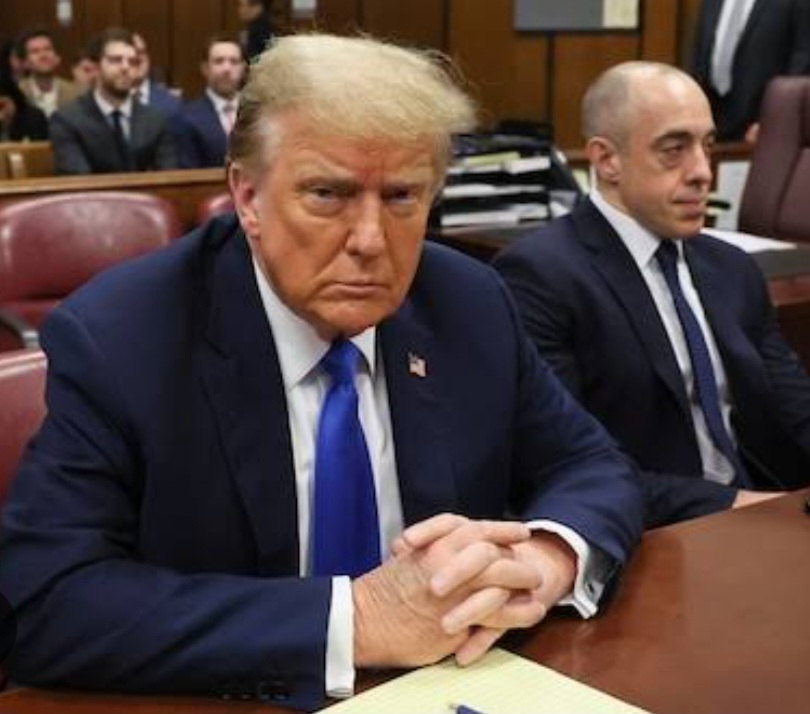
[ad_1]

The prosecution in Donald Trump’s trial has insisted that the former President tried to illegally influence the 2016 Presidential election by preventing damaging stories about his personal life from becoming public.
A prosecutor told jurors this on Monday, April 22, at the start of the former President’s historic hush money trial.
“This was a planned, coordinated, long-running conspiracy to influence the 2016 election — to help Donald Trump get elected through illegal expenditures to silence people who had something bad to say about his behaviour, using doctored corporate records and bank forms to conceal those payments along the way,” prosecutor Matthew Colangelo said.
“It was election fraud, pure and simple.”
A defence lawyer for Trump countered by assailing the case as baseless and attacking the integrity of the onetime Trump confidant who’s now the government’s star witness.
“President Trump is innocent. President Trump did not commit any crimes. The Manhattan district attorney’s office should never have brought this case,” attorney Todd Blanche said.
Trump’s lawyer also said that “there’s nothing wrong with trying to influence an election – it’s called democracy”.
It is the first criminal trial of a former American President and the first of four prosecutions of Mr. Trump to reach a jury.
Prosecutors sought from the outset to elevate the gravity of the case, which they said was chiefly about election interference as reflected by the hush money payments to a porn actor who said she had a sexual encounter with Mr. Trump.
“The defendant, Donald Trump, orchestrated a criminal scheme to corrupt the 2016 Presidential election. Then he covered up that criminal conspiracy by lying in his New York business records over and over and over again,” Mr. Colangelo said.
Mr. Trump faces 34 felony counts of falsifying business records — a charge punishable by up to four years in prison — though it’s not clear if the judge would seek to put him behind bars.
A conviction would not preclude Mr. Trump from becoming President again, but because it is a state case, he would not be able to pardon himself if found guilty.
He has repeatedly denied any wrongdoing.
[ad_2]
